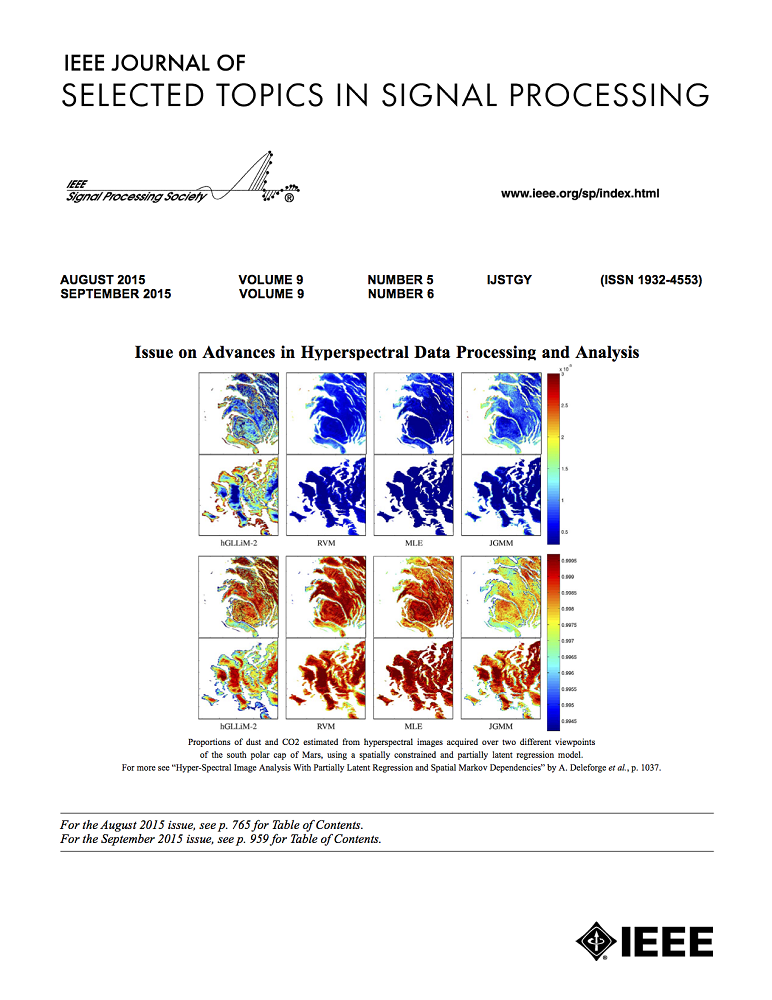Complex-Valued Autoencoder-Based Neural Data Compression for SAR Raw Data
IF 8.7
1区 工程技术
Q1 ENGINEERING, ELECTRICAL & ELECTRONIC
IEEE Journal of Selected Topics in Signal Processing
Pub Date : 2025-04-07
DOI:10.1109/JSTSP.2025.3558651
引用次数: 0
Abstract
Recent advances in Synthetic Aperture Radar (SAR) sensors and innovative advanced imagery techniques have enabled SAR systems to acquire very high-resolution images with wide swaths, large bandwidth and in multiple polarization channels. The improvements of the SAR system capabilities also imply a significant increase in SAR data acquisition rates, such that efficient and effective compression methods become necessary. The compression of SAR raw data plays a crucial role in addressing the challenges posed by downlink and memory limitations onboard the SAR satellites and directly affects the quality of the generated SAR image. Neural data compression techniques using deep models have attracted many interests for natural image compression tasks and demonstrated promising results. In this study, neural data compression is extended into the complex domain to develop a Complex-Valued (CV) autoencoder-based data compression for SAR raw data. To this end, the basic fundamentals of data compression and Rate-Distortion (RD) theory are reviewed, well known data compression methods, Block Adaptive Quantization (BAQ) and JPEG2000 methods, are implemented and tested for SAR raw data compression, and a neural data compression based on CV autoencoders is developed for SAR raw data. Furthermore, since the available Sentinel-1 SAR raw products are already compressed with Flexible Dynamic BAQ (FDBAQ), an adaptation procedure applied to the decoded SAR raw data to generate SAR raw data with quasi-uniform quantization that resemble the statistics of the uncompressed SAR raw data onboard the satellites.基于复值自编码器的SAR原始数据神经数据压缩
合成孔径雷达(SAR)传感器的最新进展和创新的先进成像技术使SAR系统能够获得宽波段、大带宽和多极化通道的高分辨率图像。SAR系统能力的改进也意味着SAR数据采集率的显著提高,因此需要高效和有效的压缩方法。SAR原始数据的压缩在解决SAR卫星下行链路和内存限制所带来的挑战方面起着至关重要的作用,并直接影响生成的SAR图像的质量。利用深度模型的神经数据压缩技术在自然图像压缩任务中引起了许多人的兴趣,并显示出良好的结果。本研究将神经数据压缩扩展到复域,开发一种基于复值(CV)自编码器的SAR原始数据压缩方法。为此,回顾了数据压缩的基本原理和率失真(RD)理论,对SAR原始数据压缩的常用数据压缩方法,即块自适应量化(BAQ)和JPEG2000方法进行了实现和测试,并开发了一种基于CV自编码器的SAR原始数据神经数据压缩方法。此外,由于现有的Sentinel-1 SAR原始产品已经使用柔性动态BAQ (FDBAQ)进行了压缩,因此对解码的SAR原始数据进行了自适应处理,生成了类似于卫星上未压缩SAR原始数据统计的准均匀量化SAR原始数据。
本文章由计算机程序翻译,如有差异,请以英文原文为准。
求助全文
约1分钟内获得全文
求助全文
来源期刊

IEEE Journal of Selected Topics in Signal Processing
工程技术-工程:电子与电气
CiteScore
19.00
自引率
1.30%
发文量
135
审稿时长
3 months
期刊介绍:
The IEEE Journal of Selected Topics in Signal Processing (JSTSP) focuses on the Field of Interest of the IEEE Signal Processing Society, which encompasses the theory and application of various signal processing techniques. These techniques include filtering, coding, transmitting, estimating, detecting, analyzing, recognizing, synthesizing, recording, and reproducing signals using digital or analog devices. The term "signal" covers a wide range of data types, including audio, video, speech, image, communication, geophysical, sonar, radar, medical, musical, and others.
The journal format allows for in-depth exploration of signal processing topics, enabling the Society to cover both established and emerging areas. This includes interdisciplinary fields such as biomedical engineering and language processing, as well as areas not traditionally associated with engineering.
 求助内容:
求助内容: 应助结果提醒方式:
应助结果提醒方式:


